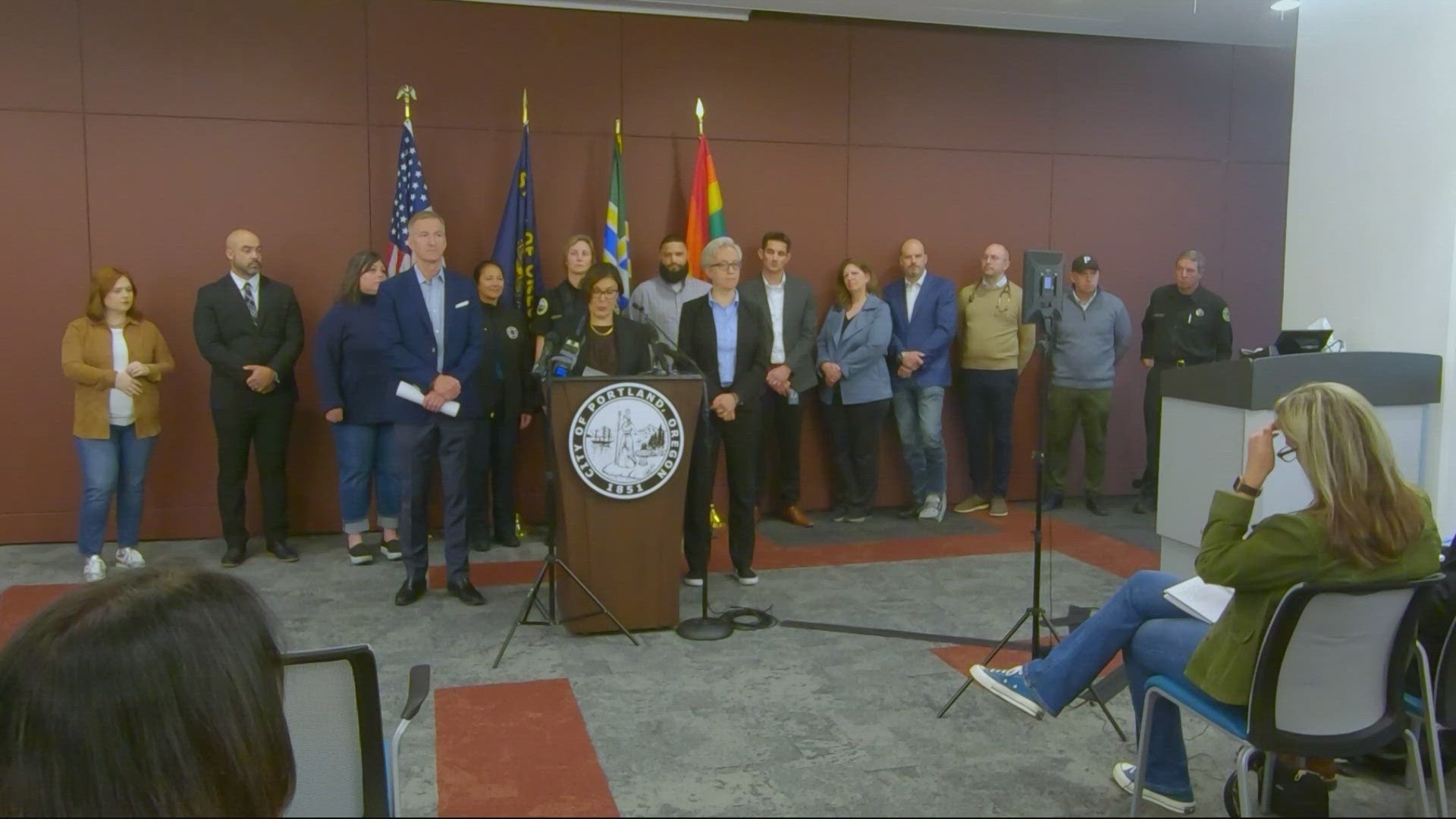PORTLAND, Ore. — It's been three months since Portland, Multnomah County and Gov. Tina Kotek declared a joint fentanyl state of emergency, aimed at syncing up and coordinating how each level of government is responding to the fentanyl crisis in downtown Portland.
The 90-day declaration expired this week, and at a news conference on Friday, Kotek, Mayor Ted Wheeler and Multnomah County Chair Jessica Vega Pederson declared the experiment a success, pledging to maintain the higher level of coordination, build on the emergency period's successes and keep some of the emergency tactics in place.
"I have directed the Oregon State Police to extend their presence in Portland for another six months to continue their joint missions with the Portland Police Bureau," Kotek said during her opening remarks.
The three-month emergency was one of the recommendations that came out of a Central City Task Force that Kotek convened last fall to tackle the problems in downtown Portland. Friday's news conference was accompanied by the release of a 121-page report on the crisis response during the emergency period.
In a news release, the trio touted a list of accomplishments over the past three months, including new downtown security measures, new daily coordination protocols between first responder agencies and treatment providers, launching a fentanyl dashboard, expanding the Portland Police Bureau Central Bike Squad's patrol hours, increasing naloxone distribution, and temporarily suspending two Bottle Drop sites to disrupt nearby fentanyl activity.
The last 90 days have seen more than 200 overdose reversals on Portland streets; 28 pounds of fentanyl seized; and more than 1,600 people contacted through outreach efforts, according to the report.
Vega Pederson also highlighted a fentanyl summit for treatment providers and community partners organized by the county Health Department in March, aimed at coordinating approaches to prevention, treatment and harm recovery.
"These gatherings will continue quarterly from here on out," she said.
The news release outlined several other planned actions for the coming months, such as developing a universal intake facility that accepts referrals from all sources to get people connected with treatment and creating a shelter bed tracking system at the Joint Office of Homeless Services.
"If there is an open bed anywhere, we want to know where it is, and we want to get people in it," Kotek said. "I never want to hear there is an open bed not being used."
Vega Pederson highlighted new mobile addiction treatment clinics that the county plans to deploy to directly serve people on the streets. She also highlighted the launch of a new campaign to teach teenagers about the dangers of fentanyl, and said the county will also be working to set up its new deflection system to be ready when the updates to Measure 110 roll out in September.
Wheeler touted a number of city initiatives to address homelessness and the fentanyl crisis, including efforts that began before the emergency such as increased police bureau recruitment, setting up large-scale campsites and the establishment of a central Street Services Coordination Center for the city.
"While I was pleased with the results of the work we were doing individually as a city, the fact of the matter is that this 90-day fentanyl crisis, declared three ways between the state, the county and the city, has allowed us to speed up the implementation of these processes citywide," he said.

